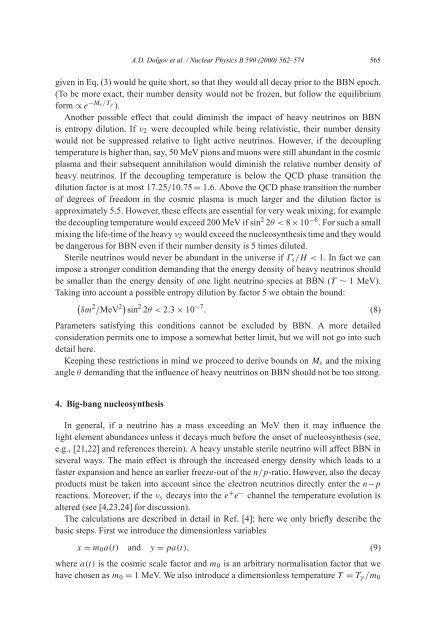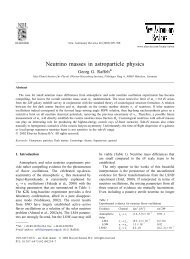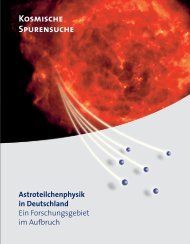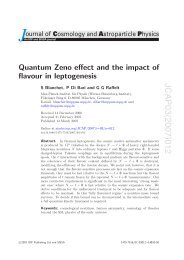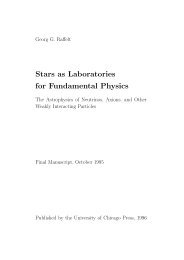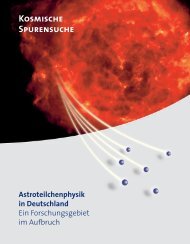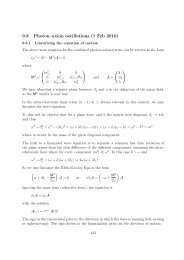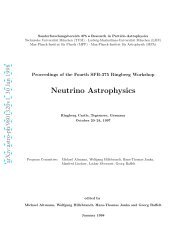Heavy sterile neutrinos - MPP Theory Group
Heavy sterile neutrinos - MPP Theory Group
Heavy sterile neutrinos - MPP Theory Group
Create successful ePaper yourself
Turn your PDF publications into a flip-book with our unique Google optimized e-Paper software.
A.D. Dolgov et al. / Nuclear Physics B 590 (2000) 562–574 565<br />
given in Eq. (3) would be quite short, so that they would all decay prior to the BBN epoch.<br />
(To be more exact, their number density would not be frozen, but follow the equilibrium<br />
form ∝ e −M s/T γ<br />
).<br />
Another possible effect that could diminish the impact of heavy <strong>neutrinos</strong> on BBN<br />
is entropy dilution. If ν 2 were decoupled while being relativistic, their number density<br />
would not be suppressed relative to light active <strong>neutrinos</strong>. However, if the decoupling<br />
temperature is higher than, say, 50 MeV pions and muons were still abundant in the cosmic<br />
plasma and their subsequent annihilation would diminish the relative number density of<br />
heavy <strong>neutrinos</strong>. If the decoupling temperature is below the QCD phase transition the<br />
dilution factor is at most 17.25/10.75 = 1.6. Above the QCD phase transition the number<br />
of degrees of freedom in the cosmic plasma is much larger and the dilution factor is<br />
approximately 5.5. However, these effects are essential for very weak mixing, for example<br />
the decoupling temperature would exceed 200 MeV if sin 2 2θ


